© 2022 All rights reserved Worktop Library
The top 3 kitchen worktop materials are granite, artificial marble (or marble-effect quartz) and wood.
When you undertake a kitchen refurbishment, the element that may take you even longer to choose than kitchen cabinets or floor tiles is the worktop. Since being in the kitchen daily with family and friends, you will want to ensure pleasing aesthetics. Therefore, the kitchen worktop can transform the look of the space. For this reason, the work surface you are looking for must be resilient, practical, and easy to use. Fortunately, there are many work surfaces in the market. But the most popular are granite worktops, artificial marble (known by many as Silestone), and wooden worktops. Let’s see what each one of these brings to your space!
Granite Worktop: A Classic That Never Dies
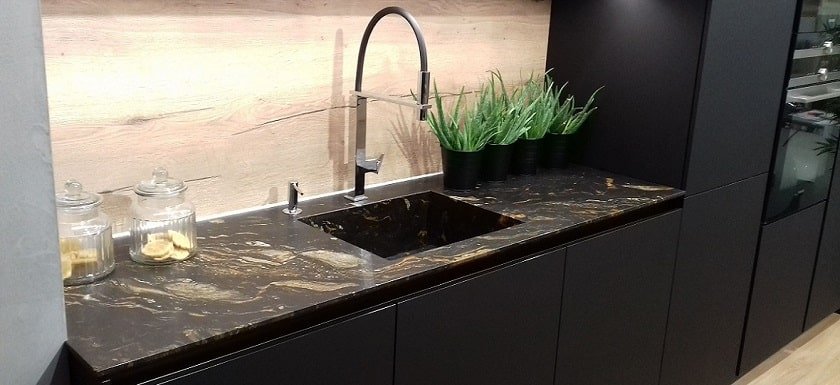
It is a stone formed on the Earth’s crust comprising quartz, feldspar and mica. It’s heated and pressured over thousands of years during a natural process. As a result, granite is very resilient, and each piece is unique. It is one of the reasons why granite is one of the preferred materials for kitchen worktops. In addition, it gives your home a fantastic value-for-money ratio. It is one of the most economical stone surfaces and one of the most practical.
A comprehensive natural range of colours and finishes for kitchen worktops
It is a hard stone that resists stains, high temperatures and stains. In addition, its formation process in nature results in a wide range of shades, patterns and sizes, which you can avail in different finishes: honed, silk polished, flamed brushed or antique, which can present different variations in the surface and has a satin or matte appearance.
What are the disadvantages of granite worktops? Very few. And that is why it’s on the top 3 kitchen worktop materials list.
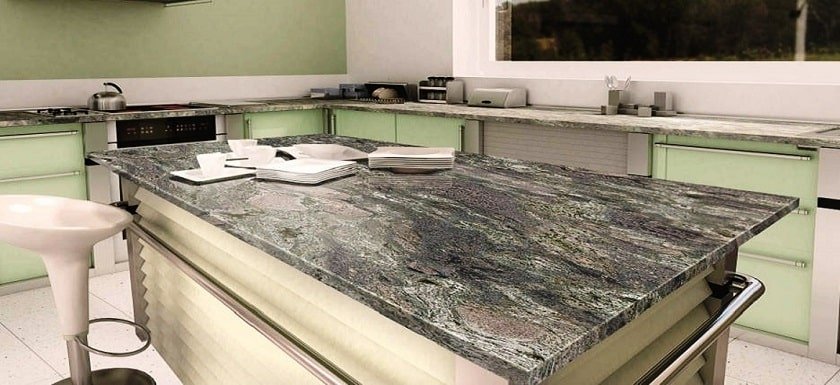
Granite has more advantages than disadvantages. However, one is that it is a porous stone. Therefore, it must be periodically sealed so liquids do not penetrate or stain it. Consequently, you can seal granite every other year to maintain its original look and to protect it. On the other hand, it has to go on top of solid furniture because of its weight.
Marble effect worktops: versatility and maximum performance
A marble effect worktop is a type of kitchen worktop that mimics the appearance of natural marble, but it comprises a different material, such as quartz or porcelain.
These worktop designs’ look like real marble and are often more affordable and straightforward to maintain than natural marble. Marble effect worktops come in a variety of colours and patterns. They can be an excellent option for those who want the look of marble without the high cost or maintenance requirements. They are becoming increasingly popular in modern kitchen design.
Also known as engineered quartz, these composite marble-effect stone combines quartz crystals with resins and other additives to achieve different finishes. The main virtues of quartz are its hardness, versatility and resistance to acids. Converted into artificial marble, it offers an extra smooth surface that is very durable and available in various colours.
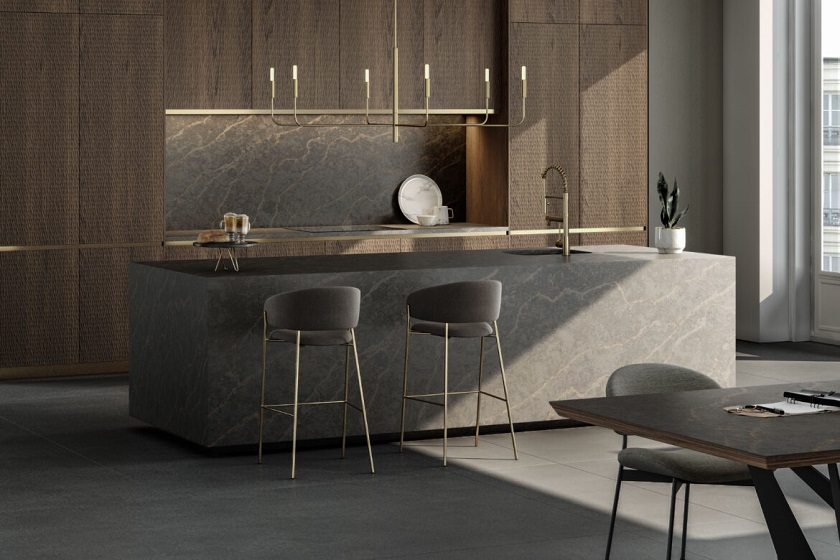
Practicality and hygiene
Silestone is the leading brand of quartz stone. It is ideal for extensive worktops as its joints are almost invisible. The surface is not porous, and therefore, it resists stains. In addition, natural quartz has antibacterial properties, so it has unique hygienic qualities and is very easy to clean. And you can give it shape without fear of having odd ends because the colour is uniform.
Video explaining the manufacturing process of artificial marble materials by Silestone
Silestone is available across the United Kingdom, and you can choose from more than 60 colours. You can also pick different finishes and styles (smooth, with veins, with fine or coarse grain, etc.). However, experts advise against darker quartz colours for the kitchen because scratches are more visible over time.
Another negative aspect is that you cannot put hot pots directly on the surface. Instead, we recommend using a trivet or a chopping board to place items you take from the oven. Regarding price, it is a relatively expensive option in the market.
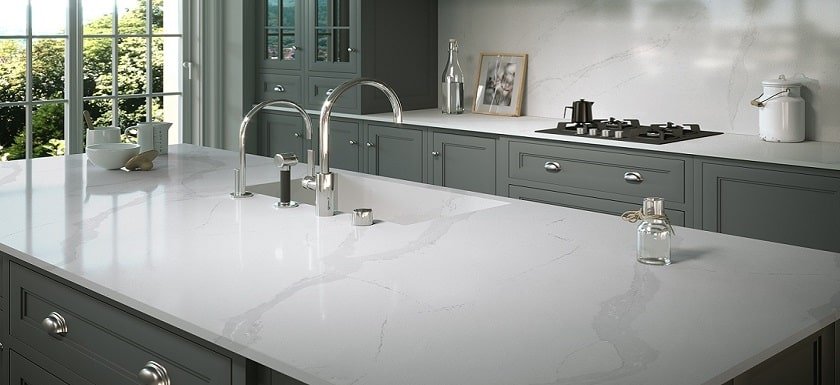
The Top 3 kitchen worktop materials include wood Countertops because they are exquisitely warm.
Wooden worktops are for romantic people and nature lovers. Wood is the warmest, timeless and highly decorative material. It adapts to any style of kitchen, from the most rustic to the most modern. What more than chameleonic and timeless can you find? Impossible. But its main virtue is the warmth it transmits. It makes the kitchen inevitably more welcoming.
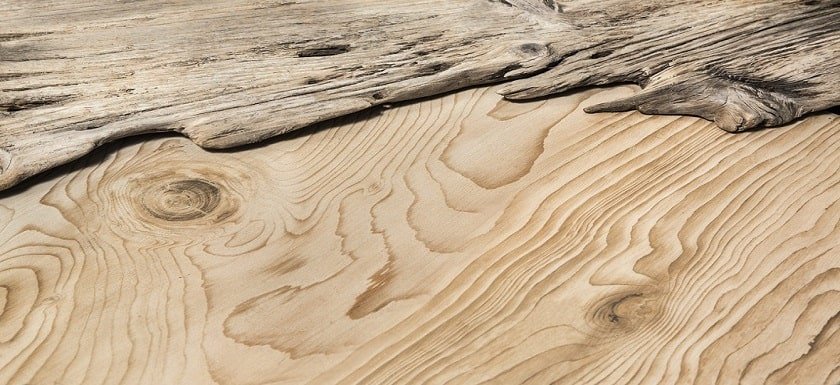
Naturally natural
Wood is an antibacterial material by nature and, therefore, has favourable hygienic properties in direct contact with food. Moreover, contrary to popular belief, its porosity does not make it a nest of waste. On the other hand, its touch and natural beauty are unique and inimitable. That is why they are the number one choice for worktop applications in many Nordic-inspired homes.
Frail Beauty
Despite its aesthetic and antibacterial qualities, it is the most delicate option outlined in this article. Natural wood is soft and porous. Therefore, it has a lower resistance to stains, impact and scratches. That is not to say that you should disregard its use as a worktop: it is inexpensive, and if you take proper precautions, it can stay intact. In addition, it can be sanded and varnished periodically to renew its appearance. And this is why it remains a popular choice in the top 3 kitchen worktop materials.
Given the main characteristics of these contenders, what type of kitchen worktop do you choose for your space?
Author:

Alan Nussbaum
Meet Alan Nussbaum, our Sales and Marketing Manager. With almost two decades of experience, Alan’s impressive track record includes creating one of the first online stone companies in 2012 and pioneering the acceptance of cryptocurrencies in construction in 2018 before co-founding The Worktop Library with Maria.
Alan’s work is featured in numerous Stone and Home Decor magazines. In addition, he collaborates with the industry’s leading stone brands, cementing his reputation as an innovator.
Before starting a thriving career in the stone industry, Alan honed his skills by overseeing luxury fashion brands such as Burberry, Matches Fashion, and Patrick Cox. With his unique blend of experience and expertise, Alan is a true trailblazer in the stone worktop industry. His passion for delivering exceptional service is evident in every aspect of his work.
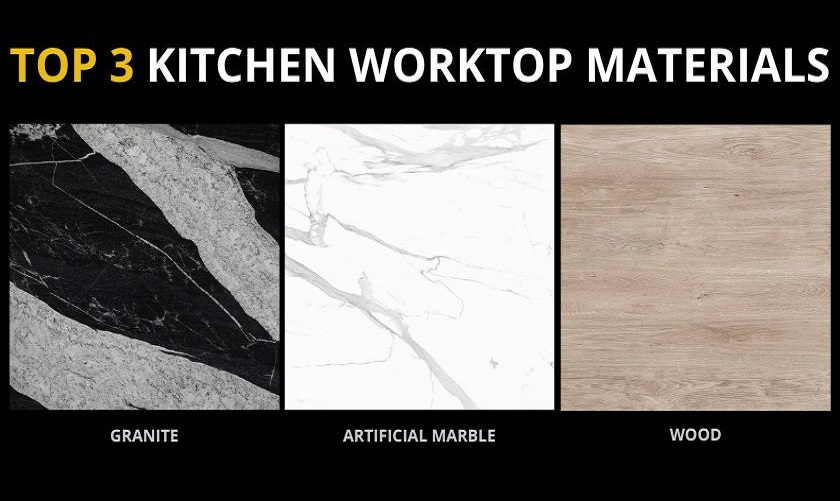
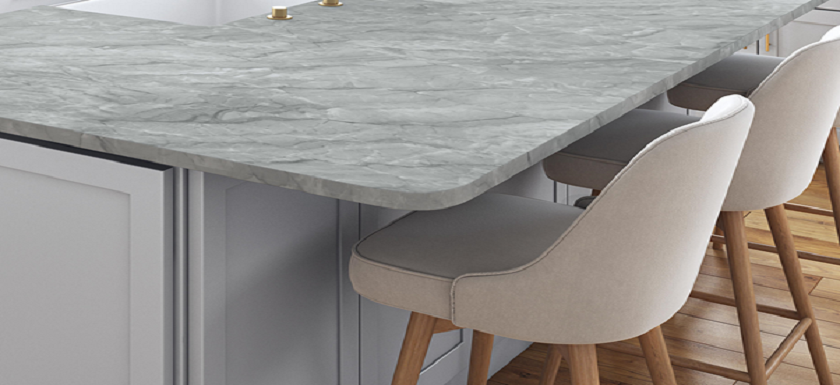 Apr 16 2021
Apr 16 2021 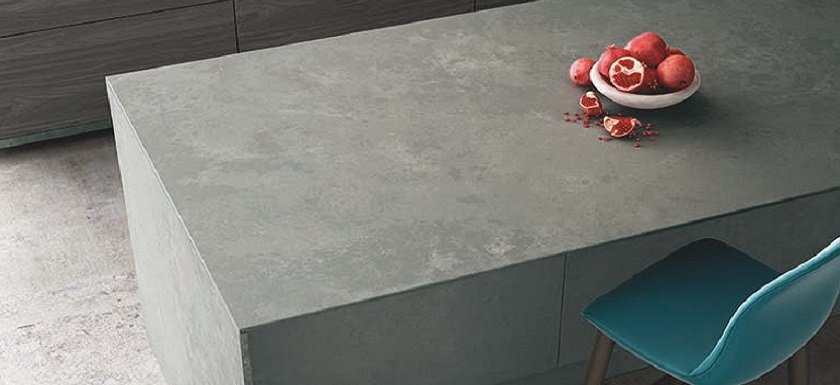 Apr 19 2021
Apr 19 2021  May 05 2021
May 05 2021 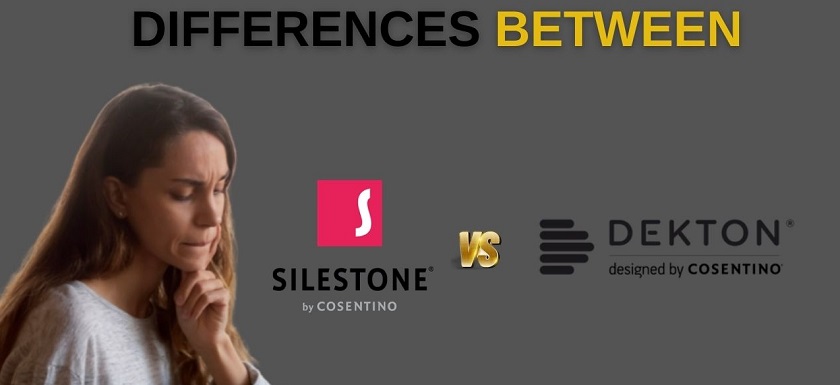 May 07 2021
May 07 2021 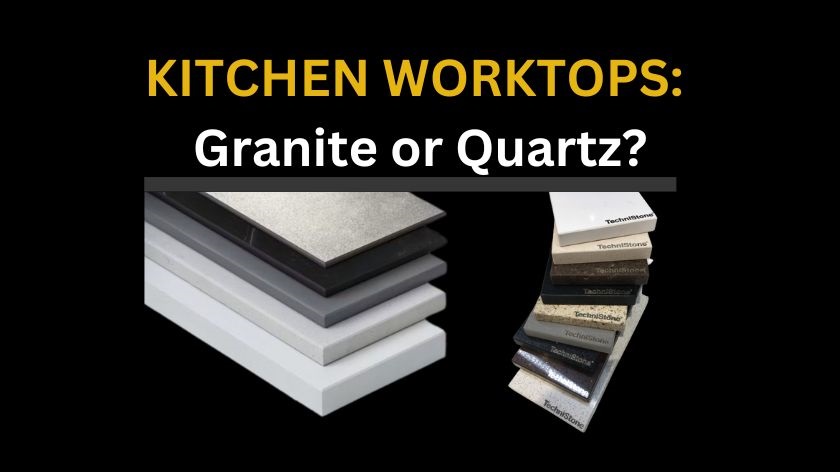 May 15 2021
May 15 2021  May 17 2021
May 17 2021 